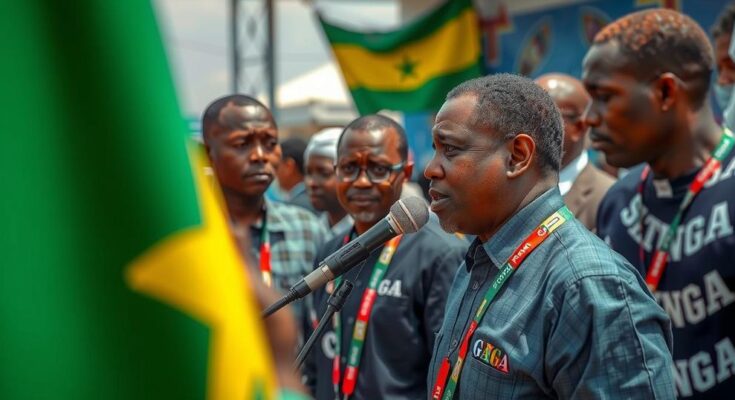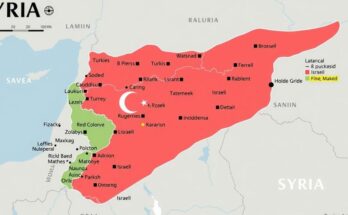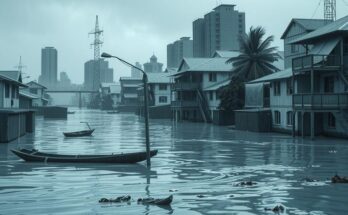Senegal nears a pivotal legislative election as tensions rise from recent clashes. Voters will select 165 lawmakers, impacting President Faye’s reform plans, which are challenged by the opposition. Violence marred the campaign, drawing attention to potential threats to democratic stability.
In Senegal, the political landscape is charged as the nation prepares for a pivotal legislative election. The tense campaign concluded on Friday, with voters set to select 165 lawmakers this Sunday. Presently, President Bassirou Diomaye Faye, who ascended to power earlier this year on an anti-establishment agenda, does not command a majority in the assembly, which complicates his efforts to initiate vital reforms, including anti-corruption measures and resource allocation for the populace. The tense atmosphere has been punctuated by sporadic clashes between rival political supporters. Recently, confrontations erupted in central regions, leading to incidents such as the arson of an opposition party’s headquarters. Faye, who recently dissolved the previous opposition-majority parliament, aims to secure legislative power against the Takku Wallu coalition headed by former President Macky Sall, challenging his reform agenda. The violent clashes have drawn public attention, particularly incidents involving prominent opposition figures such as Ousmane Sonko, the Prime Minister who vocally condemned the violence against his supporters. Despite calls for retaliation, Sonko urged peace in subsequent addresses, underscoring the delicate balance between political fervor and public safety. The incident that resulted in the injury of an allied party leader signifies the growing tensions as the election approaches. Senegal’s political stability has been previously tested, particularly during the March presidential elections that raised concerns regarding the potential for unrest in a region plagued by political upheaval. The release of Faye and Sonko from incarceration prior to the election followed a political amnesty granted by Sall, who faced mounting pressures regarding his intentions for a third term in office. This historical context amplifies the significance of the upcoming election and its implications for Senegal’s democratic integrity.
The upcoming legislative election in Senegal represents a critical juncture for the nation’s governance and political stability. Following the recent presidency of Bassirou Diomaye Faye, who came to power on a reform-driven agenda, the election will decide the composition of the National Assembly and whether his party can gain the majority necessary to enact significant changes. The backdrop of previous unrest, including violent protests and high-profile arrests, underscores the challenges facing Senegal’s democratic processes.
As Senegal approaches its legislative elections, the political climate remains tense, marked by violence and opposition clashes. President Faye’s ambitions for reform hinge on gaining a parliamentary majority, making the election crucial not only for his agenda but for the nation’s democratic integrity. The events leading up to this election, including violent confrontations and past political instability, highlight the significance of these upcoming votes for Senegal’s governance and political future.
Original Source: apnews.com




